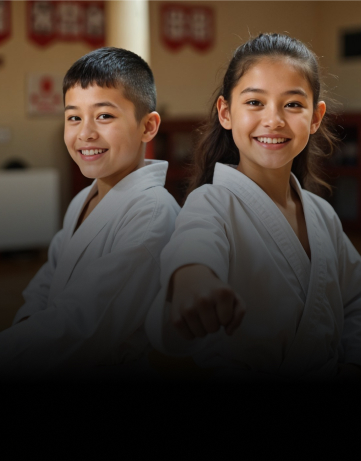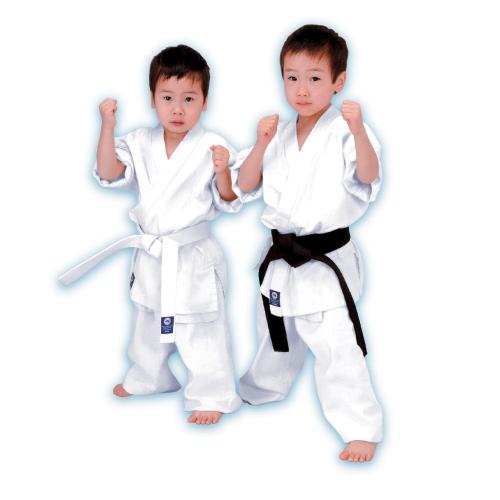Legacy Martial Arts – Creating Stronger Kids and Families Through Martial Arts
Exactly How Karate for Children Can Increase Self-confidence and Self-control in Young Martial Artists
Karate for kids offers a special opportunity to develop self-confidence and technique in young martial musicians. As they find out new techniques and face difficulties, they not just gain skills but also create a solid sense of self-worth. This organized environment encourages them to value the trip of enhancement. How does this training translate into their everyday lives? Discover the deeper connections that make karate even more than just a sport.
The Significance of Confidence in Youth Advancement
Confidence is a crucial structure block in childhood years development. When you nurture your youngster's self-worth, you encourage them to encounter obstacles, take threats, and express themselves freely. Kids with confidence are extra ready to discover brand-new tasks and social circumstances, which can bring about long-term relationships and useful experiences.Encouraging your kid to tip out of their convenience zone promotes durability. They learn that failing isn't completion however rather a tipping rock to success. By commemorating their accomplishments, despite how tiny, you assist them acknowledge their abilities and worth.In this trip, support and favorable support from you play a crucial role. Whether it's through appreciation or simply existing, your involvement boosts their self-confidence. As they grow, this self-assurance comes to be a lifelong property, furnishing them to navigate both obstacles and opportunities with a solid sense of self.
How Martial Arts Instructs Technique and Focus
Martial arts assists you construct self-control and focus with its structured training program. As you practice mindfulness during each session, you'll find out to concentrate far better both on and off the mat. And also, setting and attaining goals in martial arts strengthens your capacity to stay fully commited and alert.
Structured Training Regimen
While you involve in karate training, you'll quickly find just how a structured routine instills technique and focus in young practitioners. Each class adheres to a particular layout, including warm-ups, method method, and sparring. This consistency shows you to value the process and dedicate to renovation. As you learn forms and techniques, you establish a feeling of responsibility for your own progress.The organized environment motivates you to establish objectives, whether understanding a new belt or developing a kata. You'll locate that staying focused throughout courses and drills hones your focus. The self-control you grow in martial arts expands past the dojo, positively affecting your schoolwork and daily regimens. Each session strengthens the relevance of dedication, helping you grow right into an extra disciplined individual.
Mindfulness in Practice
As you practice karate, you'll find that mindfulness becomes an important part of your training. Each relocation requires your full attention, helping you stay concentrated on today moment. You'll learn to tune out distractions and concentrate on your breathing, activities, and purposes. This enhanced recognition develops your reflexes and improves your discipline.During sparring or types, you'll find the significance of being mentally present - Karate Salisbury MD. You'll notice just how this emphasis not only enhances your technique but also constructs your self-confidence. By practicing mindfulness in karate, you grow perseverance and strength, essential attributes that expand beyond the dojo. This way, martial arts shows you to harness your mind, assisting you develop a regimented approach to obstacles both on and off the floor covering

Personal Goal Setting Techniques
Establishing goals in karate isn't simply about making belts; it's an effective way to cultivate technique and focus. When you set details, achievable targets, you produce a roadmap for your progression. As an example, instead of simply aiming to boost your kicks, try concentrating on understanding a particular technique monthly. This approach keeps you motivated and engaged.Breaking down larger objectives into smaller sized, manageable steps assists you track your progression and commemorate small victories along the method. Whether it's developing your position or boosting your sparring endurance, every objective enhances your dedication. As you attain these goals, you'll build confidence in your skills and develop a strong sense of technique that extends beyond the dojo into everyday life.
Building Resilience Through Martial Arts
Martial arts, especially karate, uses youngsters an one-of-a-kind possibility to develop durability in a helpful atmosphere. In classes, they deal with difficulties that push their limits, whether it's mastering a new method or sparring with a companion. Each obstacle, like a missed kick or a lost match, ends up being an opportunity to find out and grow.As they exercise, youngsters learn to embrace pain and maintain trying, even when points obtain difficult. They discover that failing isn't completion; it belongs to the journey. This attitude assists them bounce back stronger, not simply in the dojo, however in everyday life.With each Continue challenge they get over, your kid builds self-confidence in their capability to deal with obstacles, sustaining their decision. Via martial arts, they'll understand that strength isn't almost physical toughness; it has to do with mental grit and willpower, encouraging them to face whatever life tosses their method.
The Duty of Respect in Martial Arts Training
Regard is a foundational concept in karate training, fostering a society of discipline and sociability among pupils. When you step onto the dojo flooring, you're not just discovering techniques; you're additionally learning to appreciate your instructors, peers, and the art itself (Karate Salisbury MD). Bowing at the start and end of course isn't just a procedure; it symbolizes your recommendation of others' efforts and dedication.As you develop shared regard, you'll find it improves your knowing experience. You'll pay attention more diligently to your instructor and gain insights from fellow pupils. This environment motivates positive criticism and assistance, permitting everybody to expand together.Moreover, respect cultivates self-control. Recognizing the value of effort and humility aids you stay concentrated on your training. Subsequently, this respect equates right into your everyday life, enhancing your communications and connections outside the dojo. Through karate, you learn that regard is vital for individual development and neighborhood structure
Establishing Objectives and Achieving Success in Martial arts

Social Skills and Synergy in the Dojo
While training in the dojo, children naturally develop important social abilities and team effort abilities. As they exercise along with peers, they discover to communicate properly, share area, and assistance one another. Each course presents possibilities for partnership, whether it's during companion drills or group workouts. This team effort fosters relationships and creates a feeling of belonging, making the dojo a nurturing environment.Kids also obtain useful conflict resolution abilities. When they encounter obstacles, such as disputes throughout sparring, they her response learn to browse these situations constructively. They exercise patience and empathy, recognizing that everybody has various staminas and weaknesses.Moreover, taking part in group tasks cultivates a sense of liability. You'll see your child finding out to rely upon teammates and take duty for their role in a group. These experiences not just enhance their martial arts trip but likewise equip them with social tools they'll bring right into other locations of life.

The Long-Term Advantages of Martial Arts Beyond Childhood Years
As kids grow up and move right into the adult years, the benefits of karate prolong much past the dojo. You'll locate that click for info the discipline and focus found out through karate can translate into your academic and expert life. Establishing and attaining objectives in martial arts fosters a strong work principles, which can press you to succeed in any kind of endeavor.Moreover, the self-confidence obtained from understanding techniques and sparring can improve your self-confidence, assisting you deal with obstacles head-on. This resilience ends up being invaluable as you face the uncertainties of adulthood.Additionally, the social skills developed via synergy and camaraderie in the dojo can lead to better relationships in both expert and personal balls. You'll learn to communicate efficiently, resolve disputes, and build a supportive network.Ultimately, karate forms not simply competent martial musicians, yet well-rounded people prepared to handle the world.
Regularly Asked Concerns
What Age Is Finest to Start Martial Arts for Kids?
You can start martial arts as early as age four or 5, however it typically depends on your youngster's maturation and interest. Locating a course that suits their age and power level makes a big distinction.
Are There Any Kind Of Wellness Advantages From Practicing Martial Arts?
Yes, practicing karate deals many health benefits. You'll enhance your adaptability, sychronisation, and toughness while increasing cardio physical fitness. And also, it enhances emphasis and psychological wellness, making it a superb option for total physical and mental health and wellness.
Just How Typically Should Children Attend Karate Courses?
You should motivate your children to attend karate classes at the very least a couple of times a week. Uniformity helps them learn methods successfully and establish abilities, making their experience extra pleasurable and fulfilling in the future.
Can Karate Assist With Managing Anxiety in Children?
Yes, karate can help manage anxiety in children. It teaches focus and self-control while offering a risk-free electrical outlet for power. You'll notice your child growing a lot more tranquil and certain as they exercise frequently.
What Gear Is Needed for Kids Starting Karate?
